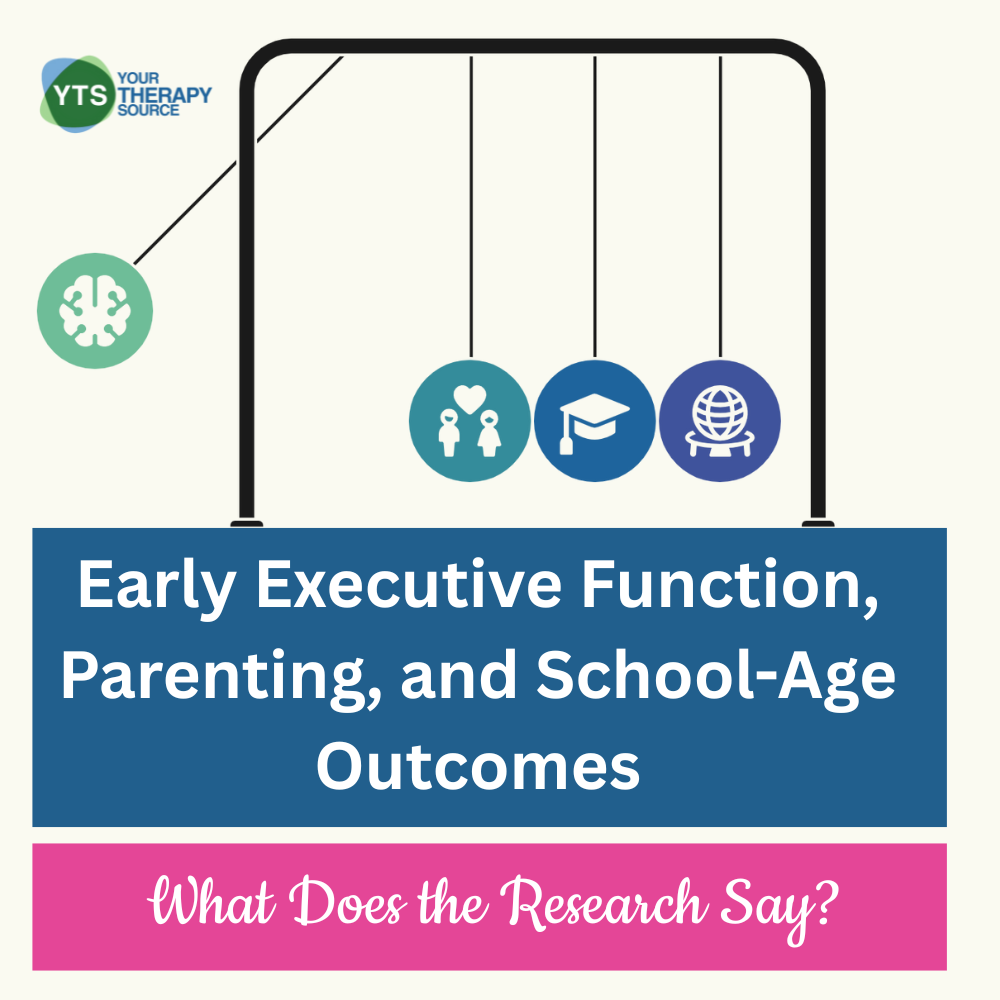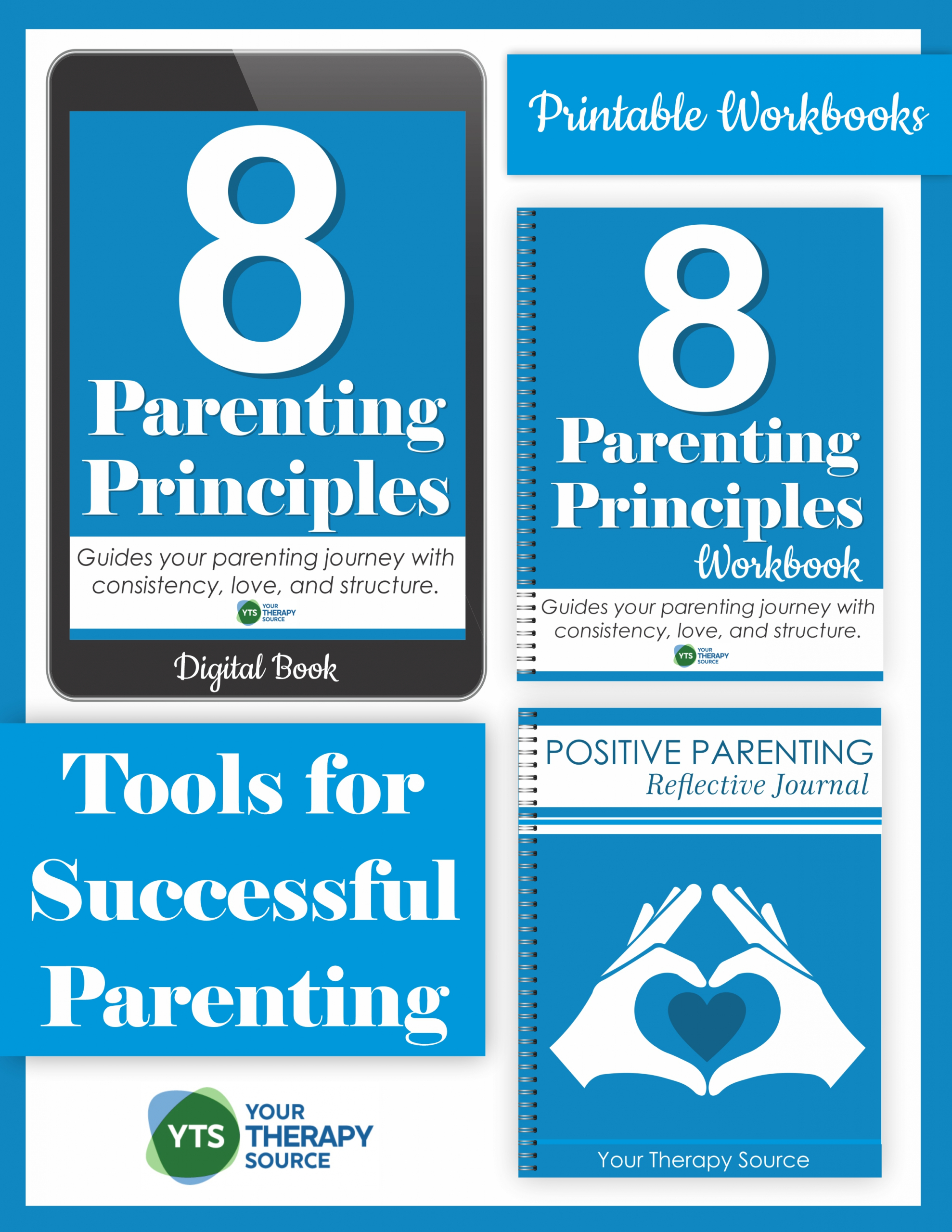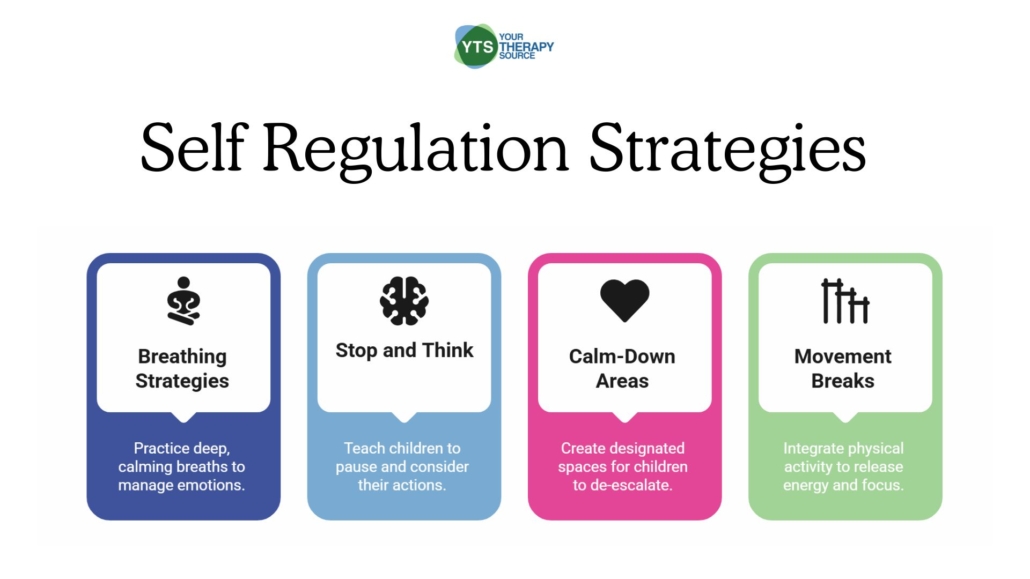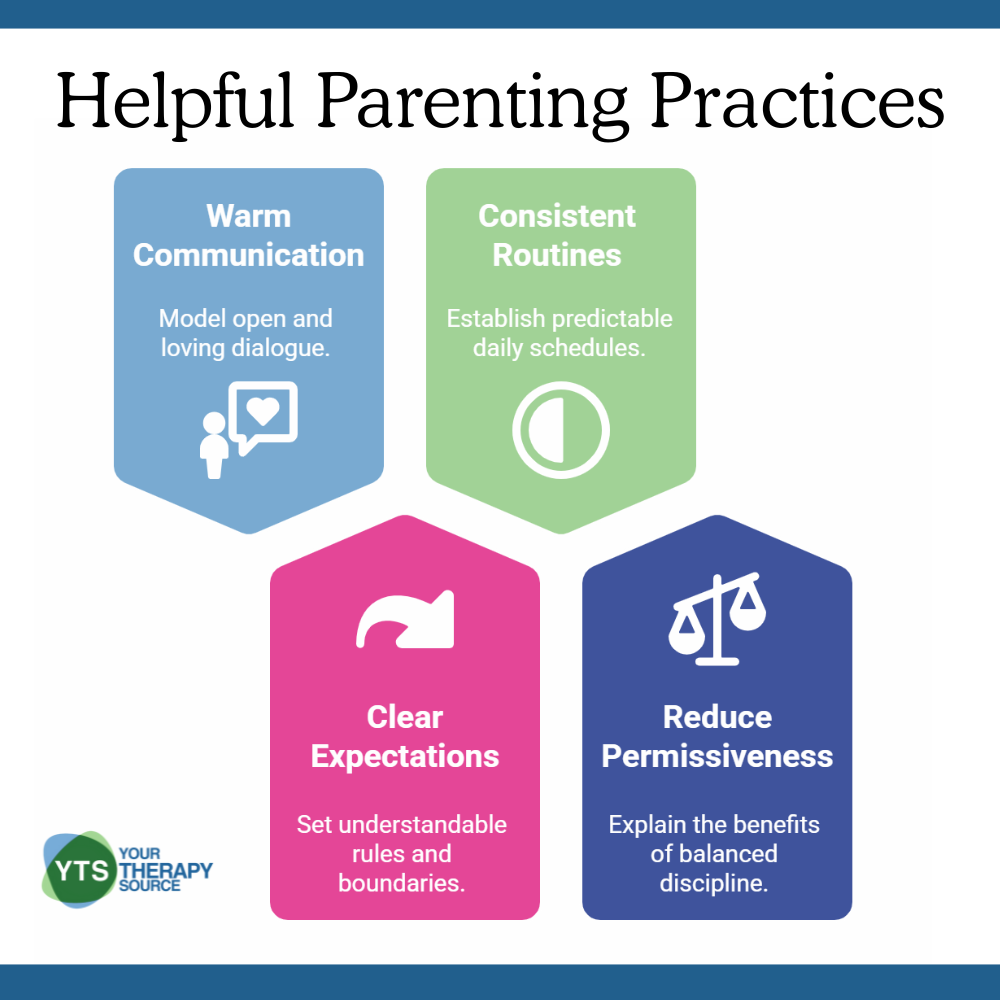Early Executive Function, Parenting, and School-Age Outcomes
A recent longitudinal study followed children from preschool age into third grade to understand how early executive function skills and parenting behaviors shape later resilience, self-regulation, and behavior. Findings from this research offer practical guidance for educators and pediatric therapists who support young children every day. Learn more about early executive function and parenting.

How Parenting Behaviors Were Defined in the Study
The study measured three common parenting styles that influence child development in different ways. Understanding these helps educators and therapists communicate clearly with families.
- Authoritative parenting refers to warm, supportive behaviors combined with clear guidance and consistent limits. Parents explain expectations, offer autonomy, and use reasoning to help children learn.
- Authoritarian parenting refers to strict control, limited emotional warmth, and heavy emphasis on obedience. Parents may use harsh discipline or give many rules with little explanation.
- Permissive parenting refers to high warmth with very few limits. Parents may give in easily, avoid discipline, or struggle to set boundaries.
The researchers created a positive parenting score by combining these patterns. Higher scores reflected parenting marked by warmth, consistency, problem solving, and structure. Lower scores reflected authoritarian or permissive behaviors.
What the Study on Executive Function and Parenting Discovered
This research helps us understand how early childhood experiences shape school-age outcomes. Before focusing on the findings, it is helpful to know that executive function, parenting, behavior, resilience, and self-regulation influence each other in ongoing, interconnected ways. Small changes in early years can create meaningful long-term effects.
- Executive function difficulties predicted later challenges: Children with more EF difficulties at ages four and six were more likely to have lower resilience, lower confidence in their self-regulation abilities, and more behavior problems at age nine. These patterns appeared directly and indirectly across the years.
- Positive parenting helped create long-term strengths: Warm, consistent, and responsive parenting early in life supported stronger EF skills and reduced behavior problems. These effects continued into the school-age years, contributing to higher resilience and stronger self-regulatory confidence.
- EF and behavior influenced each other across development: Early EF difficulties increased the likelihood of behavior concerns. Early behavior difficulties also increased EF struggles later. This two-way relationship highlights the importance of early identification and intervention.
- Resilience and self-regulation were closely connected: Children who showed higher resilience were more confident about managing school tasks, emotions, and attention. Resilience acted as a bridge linking early EF to later academic and emotional success.

Parenting Principles – Ebook and Workbooks
What This Means for Everyday Practice
The preschool years are a powerful window for building executive function and supporting families. The following strategies translate the research into practical steps for classrooms, therapy settings, and home routines.
Support EF skills through structure and routine
Young children do best when their environment feels predictable and organized. Consistent routines and clear expectations help them use their developing EF skills more effectively.
- Use predictable schedules: Predictability helps children anticipate what comes next and reduces cognitive load. Visual schedules and consistent daily routines allow children to focus on learning rather than worrying about unexpected changes.
- Offer clear, simple steps: Breaking tasks into small steps supports children with working memory or organizational challenges. Visual directions, modeled examples, and task breakdowns make activities more manageable.
- Provide transition cues: Transition cues help children prepare to shift from one activity to another. Timers, warnings, and gentle reminders reduce frustration and support smoother transitions.
- Teach flexible thinking through play: Games that involve rule changes, sorting in different ways, or playful problem solving help children practice adapting their thinking. This builds flexibility in a fun, low-pressure way.
Strengthen resilience through supportive interactions
Children build resilience when they experience nurturing relationships, predictable environments, and encouragement that focuses on effort rather than outcomes.
- Give children time to solve problems with you nearby: Allowing children to work through challenges while you offer calm presence teaches persistence and reduces fear of failure.
- Highlight effort and persistence: Pointing out a child’s effort helps them internalize a sense of capability. Noticing when they try again or stay engaged encourages future success.
- Build consistent, calm routines: Steady routines reduce stress and help children feel safe. When expectations are clear, children have more emotional capacity to handle challenges.


Raising Self Regulated Kids Issue #1 – The Science Behind Self Regulation
Build self-regulation through direct teaching
Self-regulation improves when children are taught specific tools and given regular opportunities to practice them in calm moments.
- Practice breathing strategies: Introduce simple breathing exercises that children can use independently. Practicing during calm times makes it easier for them to use the strategies during frustration.
- Teach stop and think steps: A simple routine helps children pause before reacting. Steps could include stopping, naming the problem, choosing a strategy, and then acting.
- Use calm-down areas: A comfortable, inviting space allows children to reset when emotions run high. Offer visuals, quiet tools, or sensory materials to support regulation.
- Incorporate movement breaks: Short, intentional movement breaks help reset the nervous system and maintain attention. These can be whole-body movements, stretches, or a quick walk.

Guide families toward helpful parenting practices
Educators and therapists can support families by offering practical tools that fit naturally into home routines. Small shifts in parenting can greatly influence EF, resilience, and behavior.
- Model warm communication: Showing families what calm, empathetic communication looks like helps them understand how it supports a child’s regulation and confidence.
- Encourage clear expectations: Children thrive with consistent expectations. Helping families set simple rules and follow-through practices builds structure without harshness.
- Offer ideas for consistent routines: Guidance on morning, homework, and bedtime routines can lower stress for both children and caregivers. Templates and examples make it easier for families to begin.
- Explain the impact of reducing permissiveness or harshness: Families may not realize how inconsistent or extreme responses affect their child’s regulation. Explaining the benefits of balanced, predictable parenting helps them make positive adjustments.
This study shows that early executive function and early parenting behaviors shape children’s resilience, regulation, and behavior well into the school-age years. Supporting EF, addressing behavior early, and partnering with families during preschool can create strong foundations that benefit children for many years.
Reference
Rungsattatharm, L., Tasingha, P., Trairatvorakul, P. et al. Longitudinal associations between executive function and positive parenting during early childhood and resilience, self-regulation, and behavioral problems in school-age children. Child Adolesc Psychiatry Ment Health 19, 19 (2025). https://doi.org/10.1186/s13034-025-00875-8


